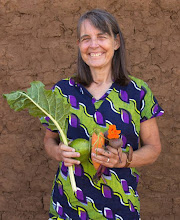Manzi Cedric. . .
Listening to and learning about people’s life stories as they begin to ‘peel back’ the layers of events and relationships that have shaped them, has always fascinated me. Due to language barriers it’s been frustrating for me during my various volunteer stints overseas not to be able to really connect with people and hear their stories. Many stories focus on their survival from natural disasters, war and genocide which all add an extra dimension of deep emotional trauma. Telling these stories and having someone there to just listen is often very healing for people. Translators have been loyal and wonderful companions, but it can be hard to make the connection with people in the presence of a third party. When I have been able to communicate easily one on one, I am consistently grateful for the deeper connection and awed by people’s courage, resilience and will to live.
I have only been able to pick up the very basics of the wide variety of languages in countries where I have worked and traveled. Urdu (Pakistan); Tetum (Timor Leste); Krio, Temne and Mende (Sierra Leone); Creole (Haiti); Kirundi (Burundi) and Kinyarwanda (Rwanda) all present challenges for my aging grey matter! My French is rudimentary and quasi-conversational, so relying on English as the only way to absorb people’s stories can make one feel incompetent and is also quite frustrating.
Despite only being 14 months old, Manzi Cedric has an extraordinary life story to date and since he is just learning to talk, the language barrier is a moot point! He was first introduced at Gikomero Health Center, one of the GHI partners here, in March 2011 when he was two months old with severe malnutrition, weighing in at 2.1 kg (4.3lbs.). His history revealed that his ‘crazy’ mother had given birth to him in a latrine and later abandoned him. The details of the first two months of his life are vague, but apparently a neighbor took care of him and then brought him to the health center. This is when GHI became aware of Cedric’s plight. Since then Cedric has become an integral member of the Gardens for Health family.
Without GHI’s intervention and commitment to take care of him at this crucial time, Cedric would have died. The progression of Cedric’s revitalization is a testament to the diligence of the GHI staff providing good nutrition and overall care. Overwhelming compassion and love have also been key factors in removing Cedric from the brink of death. Over time one of the health educators, Naomi Musabyimana, has committed to being his primary caregiver. She has other children and she has truly incorporated him into her household. He comes to work each day with her and everyone at the office helps keep an eye on him. He also gets continuous verbal and physical stimulation with a steady flow of loving hugs and kisses too.
Cedric has been evaluated recently at King Faisal Hospital in Kigali to address concerns about developmental delays as a result of his neonatal malnutrition. The physician was reassuring that Cedric is ‘on his own curve’ and should make giant strides in his development by the time he is two. A physiotherapist has also prescribed exercises for strengthening his legs for crawling, standing and walking. His new walker now really keeps him engaged and part of the action. The staff has been taught about his exercises that will contribute to his continued development.
Upon my return after three months he’s more animated, engaged and physically stronger. It’s such a pleasure to be one of his mamas while I am here, his consistent beguiling nature and cheerful soul are perhaps his way of expressing the gratitude for the life which has been given back to him thanks to GHI. I feel honored to be a small part of Cedric’s story.
Helen
Sunday, March 18, 2012
Subscribe to:
Post Comments (Atom)









No comments:
Post a Comment